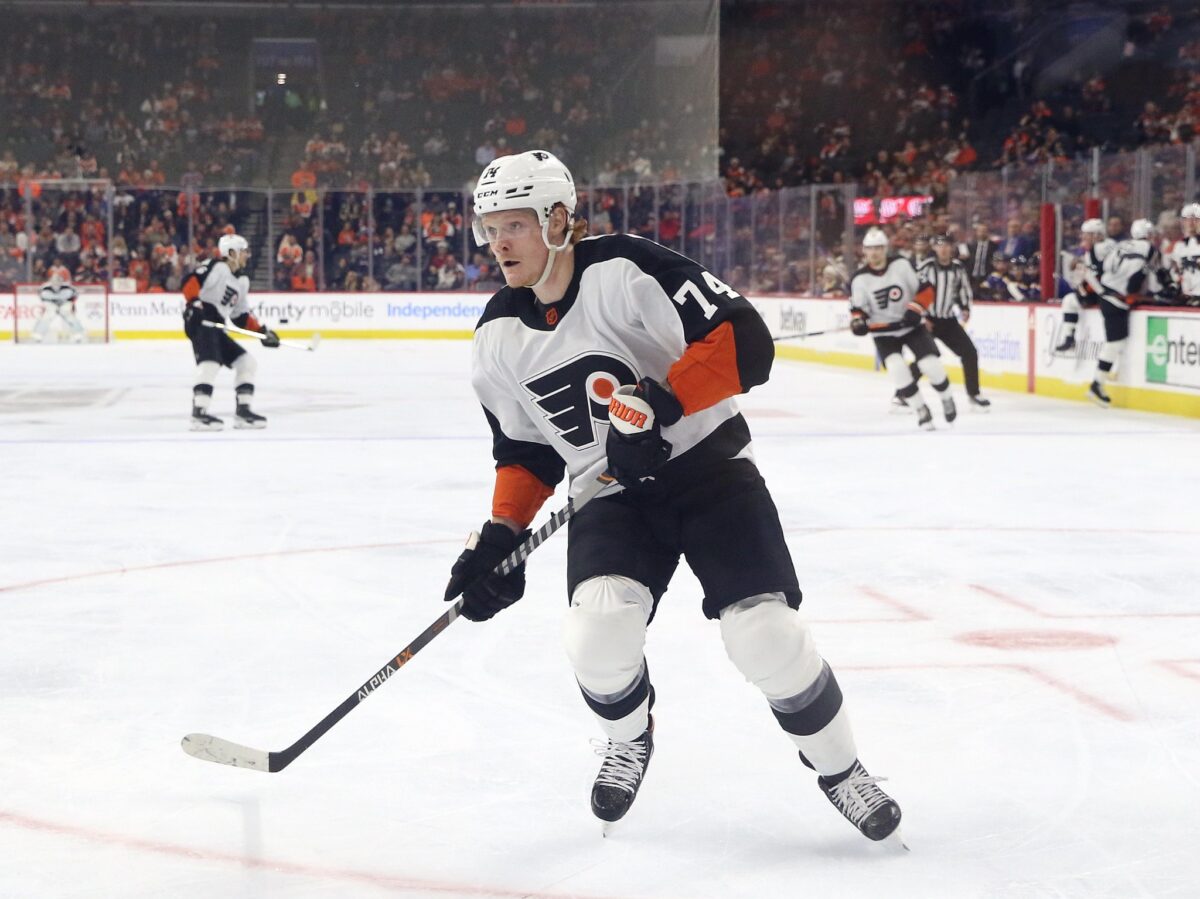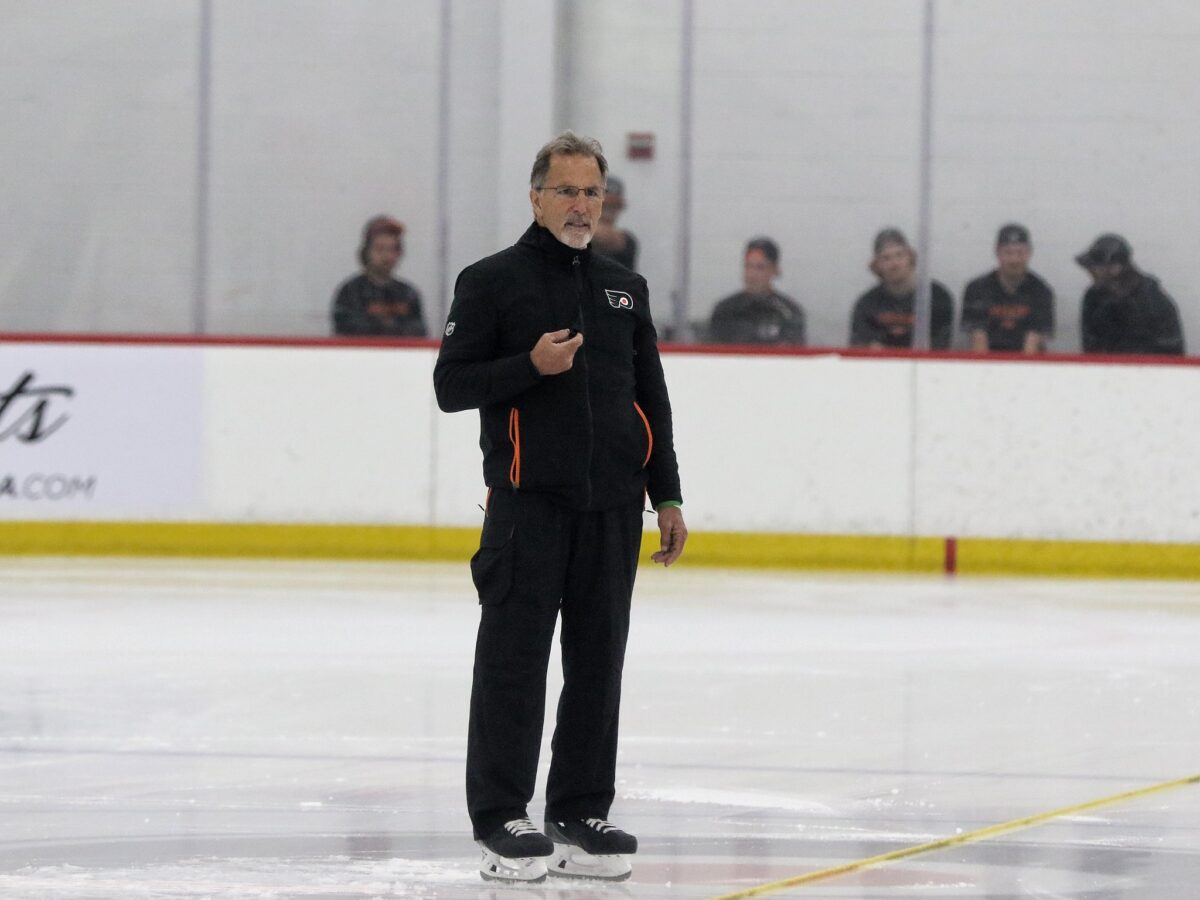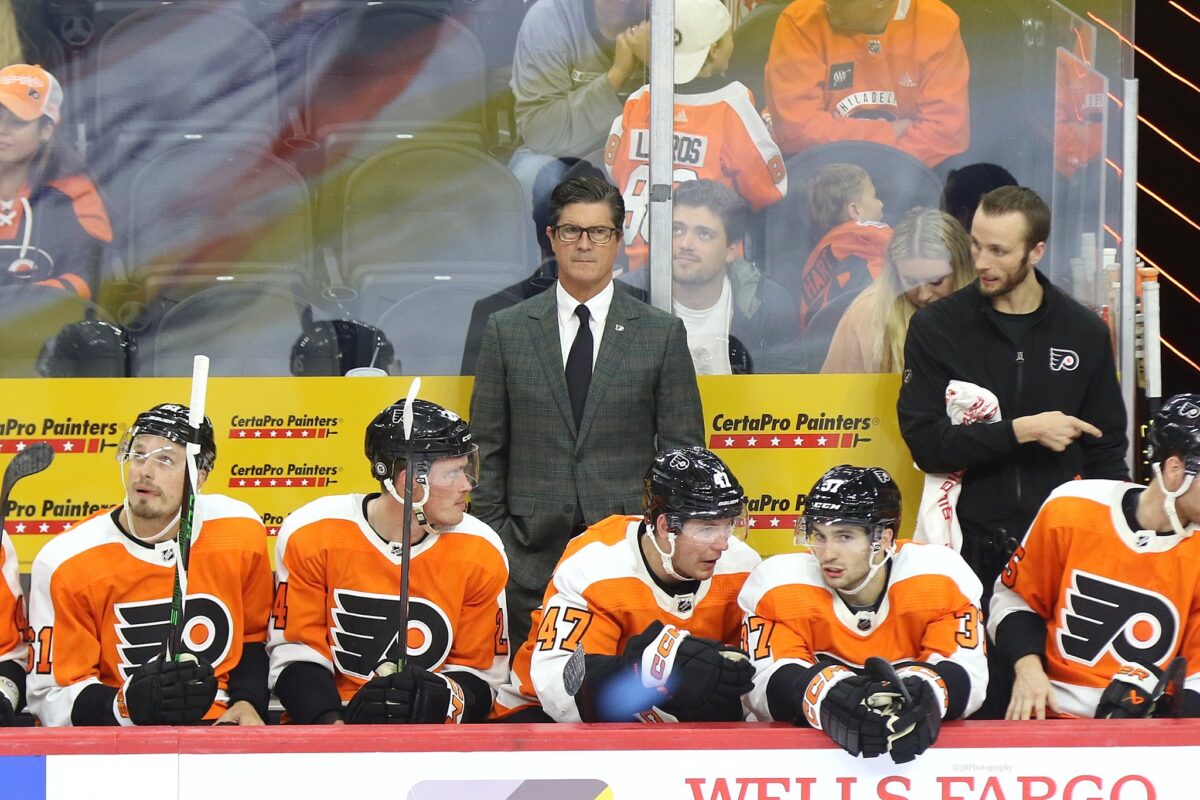The Philadelphia Flyers have an interesting player in 25-year-old winger Owen Tippett. He has shown flashes of being a star, but his 45 points in 65 games, as someone who has already spent six seasons in the NHL, suggest he is what he is at this point — a second-line player. However, he has room for significant growth.
In terms of raw talent, Tippett is a great player. He has so many terrific offensive qualities that force defenders to respect him. He also has some frustrating weaknesses. If he can put everything together in the coming seasons of his eight-year contract, he can be a staple for the Orange and Black.
Tippett’s Strengths
Tippett’s strengths are what make him valuable to the Flyers since they are rarities on the team. For starters, his elite straight-ahead speed makes him a pretty dangerous commodity. He can turn an innocent play into a breakaway on a dime and has done so on multiple occasions.
Travis Konency is a good, fast player, but not even he has that sort of skillset. Nobody does, and it’s a highly-touted skill in the modern NHL. Players are faster than they used to be, but he Tippett has taken that to another level. As a bigger player at 6-foot-1, 210 pounds, if he can combine his power with speed more often, there’s no telling what he can do. As the Colorado Avalanche’s Nathan MacKinnon has shown countless times, size and speed are a deadly duo.

In addition to his size and speed, Tippett has a great shot. His 10.1 shooting percentage is pretty average, but the reality is that he fires the puck so much from low-danger areas that he doesn’t hit the mark very often. He shoots the puck as frequently as elite scorers such as Auston Matthews or David Pastrnak but just doesn’t score at their rate.
That’s not to say Tippett can’t score goals. His 25 goals are in the 92nd percentile in the NHL, and he can shoot much better than most. In open space, he is one of the better shooters the Flyers have. He is one of the few players who scores from long range, but that also has to do with the fact that he has 70 more shots than Sean Couturier, who sits third on the team in shots on goal.
If Tippett can hone his offensive strengths, he can be a star player for years to come. He has scored at around a 30-goal, 55-point pace in each of his last two seasons. If he can bump up those numbers just a tad, he can transition from an above-average player to a star.
Where Tippett Lacks
There are a few areas where Tippett lacks. For one, his decision-making skills have not been that great. Sometimes, he gets the team into trouble by making a bad shot selection or simply a poor play with the puck. When that happens, rush chances go the other way, and that can’t happen.
Tippett is 25, so seeing him make mistakes you’d expect out of a teenager are definitely a bit concerning. For a head coach such as John Tortorella who preaches accountability out of his players, it should be especially nauseating. The overall theme of making poor decisions has been prevalent for the entire season; he is still great offensively, but some of his instincts are a bit off.

For as much offense as Tippett provides, his defense undoes that a bit, sitting at an expected goals percentage (xGF%) of just 49.3 percent on the season at even strength. It’s important to recognize that the Flyers don’t have many players whose offensive abilities outshine their defense to begin with, so having a player like Tippett is important.
Tippett’s offensive numbers are good enough to where the defense is more of a minor concern than a major one. He has his moments where he makes solid defensive plays to exit the zone, so there is definitely skill there. If it can be less of a weakness and more of something he is average at in terms of on-ice stats, that would do wonders for his game.
As of now, though, his 2.82 expected goals against per 60 minutes (xGA/60) is 23rd out of the 30 players on the team — the hope is he can improve that mark. Some of that can be attributed to one of his more common linemates, Cam Atkinson, having a poor season, but his xGF% isn’t all that impressive without him, either.
Finally, Tippett is a player who is either the best player on the ice or is completely unnoticeable for long periods of time. When he struggles, the team does as well. He has had lengthy stretches where he isn’t scoring and isn’t playing well defensively, too, and the team naturally wins fewer games when that occurs. Eliminating those dry spells will be huge.
Tippett Has Time & Room for Growth
The good news for Tippett is that he has plenty of time to grow as a player. The Flyers aren’t the best-coached team in the NHL in terms of lineup decisions, but they are one of the best-coached teams in the league in regard to how they get the most out of every player.
Tortorella and associate coach Brad Shaw have done a wonderful job elevating their players’ defensive games. They are the kings of reclamation projects, and Tippett himself is arguably one. He struggled with the Florida Panthers and early on as a Flyer under former head coach Mike Yeo, but that all changed when the guys behind the bench did, too.

It’s perfectly acceptable at this point that Tippett still has areas of his game that need work. The potential to be a star is still apparent, even though he’s not really a young player at this stage of his career.
Decision-making and defense are both teachable. It might take a couple of seasons for him to reach his final form, but if his training focuses on those two things, he might have what it takes to be a top-line player. He won’t ever be the featured player on a first line, but he could be a solid compliment once the Flyers hopefully enter their contention window. Coaching can help that happen.
Related: Philadelphia Flyers’ Rebuild Could Depend on Reclamation Projects
If Tippett finds his consistency, he can be immensely valuable for the franchise in their quest to end their half-century-long championship drought. Though his $6.2 million cap hit that will kick in during the 2024-25 season is a lot, it can be a steal if he improves his game. His upside is immense.
